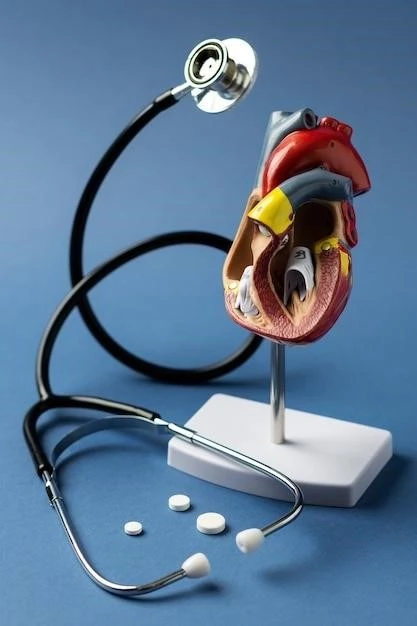Common Types of Congenital Coronary Artery Anomalies
It is crucial to understand the common types of congenital coronary artery anomalies for proper management and treatment of the condition.
Overview of Congenital Coronary Artery Anomalies
Understanding the overview of congenital coronary artery anomalies is essential. These anomalies can range from abnormal origins of arteries to variations in their course within the heart. Familiarize yourself with these anomalies for early detection and appropriate management.
Symptoms and Diagnosis of Coronary Artery Malformation
Recognizing symptoms early and undergoing diagnostic procedures promptly are crucial for effective management of coronary artery malformation.
Recognizing Symptoms of Coronary Artery Malformation
Being aware of symptoms like chest pain, shortness of breath, palpitations, and fatigue is crucial. Any unusual symptoms should prompt immediate medical evaluation to rule out coronary artery malformation. Early recognition can lead to timely intervention and better outcomes.
Diagnostic Procedures for Coronary Artery Malformation
Diagnostic procedures like coronary angiography, cardiac MRI, CT scans, and echocardiograms play a key role in confirming coronary artery malformation. These tests provide detailed insights into the structure and function of the coronary arteries, helping healthcare professionals make accurate diagnoses and recommend appropriate treatment plans for individuals with this condition.
Treatment Options for Congenital Coronary Artery Disease
Explore medical management and interventional procedures for effective treatment of congenital coronary artery disease.
Medical Management
Medical management of congenital coronary artery disease involves medications to manage symptoms, prevent complications, and improve heart function. It’s important to follow your healthcare provider’s guidance and take medications as prescribed to control the condition effectively. Regular monitoring and communication with your healthcare team are essential for optimal management of the disease.
Interventional Procedures and Surgery
Interventional procedures and surgeries may be necessary for treating congenital coronary artery disease. These procedures include angioplasty, stent placement, and in severe cases, coronary artery bypass surgery. Consulting with a cardiac specialist to determine the most appropriate intervention based on your condition is crucial for improved outcomes and long-term management of the disease.
Lifestyle Changes for Managing Coronary Artery Anomalies
Implementing healthy lifestyle modifications is vital for managing coronary artery anomalies effectively.
Importance of Healthy Lifestyle Modifications
Healthy lifestyle modifications, including a balanced diet, regular exercise, stress management, and avoidance of tobacco and excessive alcohol consumption, play a crucial role in managing coronary artery anomalies. These changes can help improve heart health, reduce risks, and enhance overall well-being. Consulting with a healthcare provider or a cardiac rehabilitation team can provide personalized guidance on making sustainable lifestyle changes.
Research Advancements in Congenital Coronary Artery Defects
Stay informed about the latest research advancements to better understand congenital coronary artery defects and their management.
Recent Developments in Understanding Anomalies
Keeping up with recent developments in understanding congenital coronary artery anomalies can provide valuable insights into new diagnostic techniques, treatment options, and potential advancements in managing these conditions. Stay connected with medical journals, research studies, and healthcare professionals to stay informed about the latest breakthroughs in the field.
Complications Associated with Coronary Artery Malformations
Understanding potential risks and complications is crucial for managing coronary artery malformations effectively.
Potential Risks and Complications
Being aware of potential risks and complications associated with coronary artery malformations is crucial. These can include heart attacks, arrhythmias, heart failure, and even sudden cardiac arrest. Monitoring your condition closely, following treatment plans, and seeking immediate medical attention for any concerning symptoms are essential steps in minimizing the risks and managing complications effectively.

Prevention Strategies for Congenital Heart Defects
Implementing appropriate preconception and prenatal care can help reduce the risk of congenital heart defects in newborns.
Preconception and Prenatal Care
Ensuring proper preconception and prenatal care is essential for reducing the risk of congenital heart defects in infants. This includes maintaining a healthy lifestyle, taking prenatal vitamins, attending regular prenatal check-ups, and discussing any family history of heart conditions with healthcare providers. Early detection and management of any potential issues during pregnancy can contribute to better outcomes for both the mother and the baby.
Support Resources for Individuals with Coronary Artery Anomalies
Accessing support resources such as patient advocacy groups, cardiac rehabilitation programs, mental health services, and online forums can provide valuable support and information for individuals living with coronary artery anomalies. Connecting with others facing similar challenges, staying informed about the condition, and seeking emotional support can greatly enhance the overall well-being and management of coronary artery anomalies.
